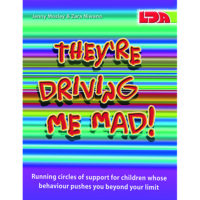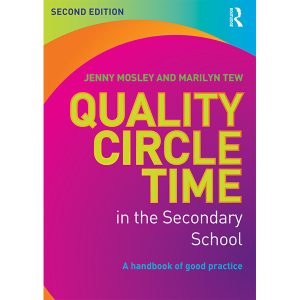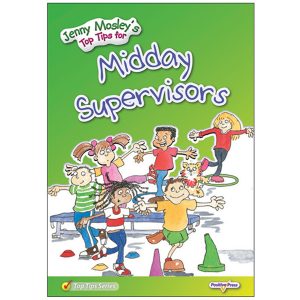They’re Driving Me Mad! Running Circles of Support for Children Whose Behaviour Pushes You Beyond Your Limit
Send Enquiry for They’re Driving Me Mad! Running Circles of Support for Children Whose Behaviour Pushes You Beyond Your Limit
By Jenny Mosley and Zara Niwano
(See blogs here and here mentioning this book!)
A really practical book for those working with children who can’t, or won’t, respond to the existing classroom behaviour systems. Full of ideas to help children through Circles Of Support. Lots of teachers, learning mentors and support workers claim that this book gives them the practical ideas they need to help boost these young people’s self-esteem – at the same time as teaching them how to develop self-discipline. Very successful programmes for small group work have been built around this book.
“Recently we completed and evaluated a ‘Circles Of Support’ group. The main instrument we used was the excellent book ‘They’re Driving Me Mad’. It helped nearly all our children ‘beyond’ develop a more positive self image. We heartily endorse the ‘Circles Of Support’ as advocated by Jenny Mosley” – Thora Grant and Liz Duthie, SEBDA. Issue 17, Summer 2009.
Format: (LDA) A4, 48pp, b&w paperback
For essential open training courses for positive behaviour, social skills, SEAL, emotional wellbeing, self-esteem CLICK HERE.
To book Jenny Mosley for your school or early years setting CLICK HERE.
For all training enquiries, phone 01225 767157 or email circletime@jennymosley.co.uk
1 review for They’re Driving Me Mad! Running Circles of Support for Children Whose Behaviour Pushes You Beyond Your Limit
Only logged in customers who have purchased this product may leave a review.
Related products
Books
Send Enquiry for Quality Circle Time in the Secondary School
Send Enquiry for The 5 Skills Books and Posters Value Pack
Send Enquiry for Helping Children Deal with Anger
Send Enquiry for 101 Activities to Help Children Get on Together
Resources to Help Midday Supervisors Engage Even More Positively
Jenny Mosley’s Top 100 Playground Games to Enjoy SEAL Outside
Send Enquiry for Jenny Mosley’s Top 100 Playground Games to Enjoy SEAL Outside
How to Create Calmer Dining Halls
How to Create Calm Dining Halls (with FREE CD-ROM of printable resources)
Send Enquiry for Jenny Mosley’s Top Tips for Puppets Scripts
Resources to Help Midday Supervisors Engage Even More Positively

















Circle Time –
Review in “Learning Support” Summer Term 1 2008 by Rose Rickford. This is a clear, usable guide to how to organise and run support groups – called “Circles of Support” – for children whose behaviour disrupts the class and whose social and emotional needs cannot be well met by strategies used with the rest of the class. The groups are meant to be used as part of a whole-school programme of supporting children with challenging behaviour and as an extension of the quality circle time (QCT) strategy. The authors briefly outline QCT which is used in many schools, and explain why it may not meet the needs of all children. They give detailed plans for how to run supoprt groups for these children. They include step-by-step guidelines and the theory behind them, allowing adults to understand how the support gruops work, and how to adapt them to the needs of specific children. The book is clear, thoughtful and easy to use and woul dbe a useful tool for TAs working in schools where this particular model of behaviour management and support is being impemented.